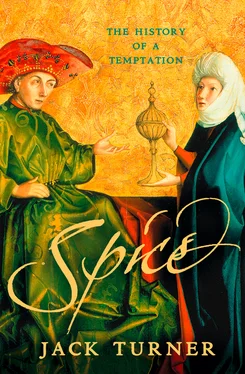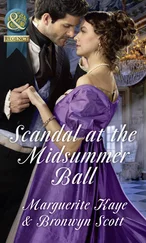It was an idea of hallucinatory promise – not for the prospect of discovery for discovery’s sake, nor even because the idea was particularly original, but because of the fiscal rewards. In the event of success Columbus’s scheme would deliver his Spanish patrons a limitless source of wealth. For the small outlay required to fit out the expedition – a sum roughly equivalent to the annual income of a middling Castilian nobleman – Columbus proposed to drag the Indies out of the realms of fable and into the mainstream of Spanish trade and conquest. Though the story of his voyage has been endlessly mythologised, buried under a mountain of romantic speculation and scholarly scrutiny, in effect his success depended on convincing a coalition of investors and then the crown that his relatively inexpensive plan merited the gamble. There were experts who disagreed, but in fifteenth-century Spain no more than in a modern democracy did expert opinion or the weight of evidence always carry the day. With a powerful syndicate and capital on his side, those who labelled Columbus crack-brained no longer mattered. His voyage was possible because he got the backing and the cash, and he got the cash because of the promise of more – vastly more – to come back in return. Today he would be labelled a venture capitalist of a particularly bold and inventive hue.
Hence, very briefly summarised, the scene in the Saló. And if the returning discoverer’s choice of exhibits made a good deal more sense then than now, so too, in his defence, did his mistakes. Very few Europeans had been to the real Indies, and fewer still had looked on the spice plants in their natural state. Reports of spices and Indies alike arrived rarely, often heavily fictionalised, a situation that left the fertile medieval imagination free to run riot, and few had imaginations more fertile than did Columbus. A month after first sighting land he had seen enough for his own satisfaction, writing in his log that ‘without doubt there is in these lands a very great quantity of gold … and also there are stones, and there are precious pearls and infinite spicery’ – none of which he had thus far laid eyes on. Two days later, as his small flotilla picked its way through the coves and reefs of the Caribbean, he discerned hidden treasures beyond the palms and sandy beaches, convinced that: ‘These islands are those innumerable ones that in the maps of the world are put at the eastern end. And he [Columbus] said that he believed that there were great riches and precious stones and spices in them …’ The evidence was lacking but his mind was made up. He had set out to find spices, and find spices he would. Desire was father to discovery.
And yet for all Columbus’s confidence there was, undeniably, something odd about his ‘spices’ – not least the fact that they did not taste, smell or look like spices such as he and his patrons knew from their daily table. But Columbus would not be disillusioned. Indeed on the subject of spice the logs and letters of his voyages read like a study in Quixotic delusion. His imagination was more than equal to the challenge of an intruding reality, far outstripping the evidence. Within a week of his arrival in the Caribbean he had the excuse to dispel any doubts: a European, unfamiliar with the plants in their natural habitat, he was bound to make the odd mistake: ‘But I do not recognise them and this causes me much sorrow.’ It was an escape clause that would stay obstinately open for the rest of his life.
So Columbus kept looking, and he kept finding. He was far from alone in his wishful thinking. His men claimed to have found aloes and rhubarb – the latter at the time imported from China and the Himalayas – although, having forgotten their shovel, they were unable to produce a sample. Rumours flitted among the excited explorers; sightings abounded. Someone found some mastic trees. * The boatswain of the Niña came forward for the promised reward, notwithstanding the fact that he had unfortunately dropped the sample (a genuine mistake or a cynical manipulation of his commander’s optimism?). Search teams were dispatched, returning with yet more samples and the caveat, by now customary, that spices must be harvested in the appropriate season. Everywhere they were bedevilled – and shielded – by their innocence. On 6 December 1492, lying off Cuba, Columbus wrote of the island’s beautiful harbours and groves, ‘all laden with fruit which the Admiral [Columbus] believed to be spices and nutmegs, but they were not ripe and he did not recognise them …’
What Columbus could see for certain, on the other hand, was the potential of great things to come. If the first samples of ‘Indian’ spices left much to be desired, his evidence and testimony were at least enough to convince the crown that he was onto something. * Preparations for a second and much larger expedition were immediately put in place, a fleet of at least seventeen ships and several hundred men sailing from Cádiz on 25 September 1493, carrying with them the same freight of unfounded optimism. In the Caribbean forests Diego Alvarez Chanca, the expedition’s physician, found evidence of fabulous wealth tantalisingly out of reach: ‘There are trees which, I think, bear nutmegs, but they were so far without fruit, and I say that I think this because the taste and the smell of the bark is like nutmegs. I saw a root of ginger which an Indian carried hanging around his neck. There are also aloes, although not of the kind which has hitherto been seen in our parts, but there is no doubt that they are of the species of aloes which doctors use.’ As he shared his commander’s illusions, so Chanca also shared his excuses: ‘There is also found a kind of cinnamon; it is true that it is not so fine as that which is known at home. We do not know whether by chance this is due to lack of knowledge of the time to gather it when it should be gathered, or whether by chance the land does not produce better.’
However not all these spice-seekers were quite so naïve or gullible as their cavalier tree-spotting might suggest. In order to assist in the search, each of Columbus’s expeditions took along samples of all the major spices to show the Indians, who would then, so it was hoped, direct them to the real thing. Yet such was the strength of the Europeans’ conviction that even their samples failed to clear up their misunderstanding – rather, the reverse was the case. During the first voyage, two crewmembers were sent on an expedition into the Cuban hinterland with samples of spices, reporting back on 2 November 1493: ‘The Spaniards showed them the cinnamon and pepper and other spices that the Admiral had given them; and the Indians told them by signs that there was a lot of it near there to the south-east, but that right there they did not know if there was any.’ It was the same story everywhere they went. ‘The Admiral showed to some of the Indians of that place cinnamon and pepper … and they recognised it … and indicated by signs that near there there was much of it, towards the south-east.’
The Spaniards’ error was, then, of the sort that has always bemused strangers in a strange land: shortcomings of intelligence; problems of communication; they were finding what they wanted to find, regardless of the reality. The script was repeated with every new landfall. The Indians, already sufficiently puzzled by the pale, bearded strangers, were accosted with samples of dried plants they had no way of recognising. Anxious to get rid of their visitors, or perhaps keen to help but reluctant to admit ignorance of the directions – a still-flourishing Caribbean tradition – the Indians fobbed them off with a wave of the hand and a vague report of gold and spices ‘further on’. And the Spaniards, incapable of rejecting their convictions, refusing to believe the awful possibility, willingly accepted the version of events that suited them best. Exceptions to their expectations were discarded as anomalies, not the smoking gun of falsification. No one could see that the empire had no spice.
Читать дальше











